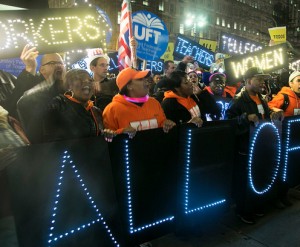To be launched in late 2018, this project will be conducted in collaboration with Jun Zhang of the University of Toronto.
Hong Kong’s Basic Law states that “The socialist system and policies shall not be practised in the Hong Kong Special Administrative Region (SAR), and the previous capitalist system and way of life shall remain unchanged for 50 years.” This “one country, two systems” principle has since governed Hong Kong’s complex and shifting relationship with the People’s Republic of China (PRC). But what was it that defined Hong Kong’s “previous capitalist system,” and how has that since evolved in conjunction with China’s ongoing economic transformation? Furthermore, in the wake of the PRC’s progressive “opening up” to the global market economy since 1978, are there not now “capitalist ways of life” on the other side of the border too? And if clear-cut distinctions cannot be drawn between the “socialist” PRC and free-market Hong Kong, how are we to understand these economies, their co- evolution, and their deep interconnections?
Celebrated as the “freest economy in the world,” Hong Kong once cast a long shadow, as an inspiration for pro-market reformers in the PRC and elsewhere. But as its economic growth rate has faltered, and as political tensions have deepened, what does Hong Kong signify today? This much vaunted city-state economy now finds itself increasingly overshadowed by an economically and geopolitically resurgent China. The project seeks to make a virtue of Hong Kong’s category-challenging transformation, using this as a provocation to rethink some of the basic categories in the comparative analysis of capitalism. It is grounded in a variegated capitalism approach, an emergent framework in economic geography developed as a constructive counterpart to the mainstream “varieties of capitalism” paradigm, with its sharp distinction between a (US-style) free-market and a (German-style) socially coordinated model. The VoC rubric essentially has it that there is one system per country, in a world dominated by two generic systems. Instead, the variegated capitalism approach focuses on the complex interdependence of economic systems and regimes across scales and locations, seeking to understand hybrid or mixed models, and positioning these in relation to their near and far “neighbours.”
Accordingly, rather than approach Hong Kong as an (almost) ideal type of free-market capitalism, it is visualized in this project as a “boundary object,” and a difficult-to-pigeonhole-case that can serve as a prompt to creatively re-evaluate and stress-test alternative explanations.
Visualizing Hong Kong “at the edge,” of free-market capitalism and Chinese socialism, and of received conceptual categories as well, the project seeks to engage this challenging but critical case in order to advance the variegated capitalism approach and to refine its nascent methodology. “One country, two systems” may perplex the conventional VoC paradigm, where national boundaries and capitalist systems are coterminous, but it presents a creative opportunity to rethink the principles and categories of comparative economic analysis and geographical political economy.

